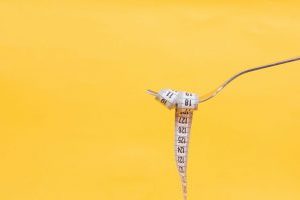An eating disorder is a mental health condition characterised by eating, exercise and body shape or shape becoming a central part of a person’s life. There are several types of eating disorders that exist, the three most common types being anorexia nervosa (where one is trying to control their weight by not eating enough food, exercising too much or doing both), bulimia (a disorder which consists of losing control over how much you eat and then taking drastic action to avoid putting on weight) and Binge Eating Disorder, otherwise known as BED ( where someone eats large portions of food until they are uncomfortably full).
It can be difficult to identify whether you are developing an eating disorder or to identify whether a loved one is developing/ has an eating disorder, the following are physical and behavioural signs that may be exhibited by someone with an eating disorder:
- Extreme mood swings
- Distorted body image
- Eating alone or hiding food
- Weight fluctuations
- Low blood pressure
- Loss of menstrual cycle
- Dizziness
- Growth of soft hair all over the body
- Dry yellowish skin
- Brittle hair and nails
Recovering from an eating disorder can seem extremely daunting, but is not impossible, you are capable of recovery. The recovery treatment may vary for different eating disorders, every person’s journey to recovery will be different and unique to them, but we will be here to help. Check our team to see who is best suited for your journey to recovery and understanding.

